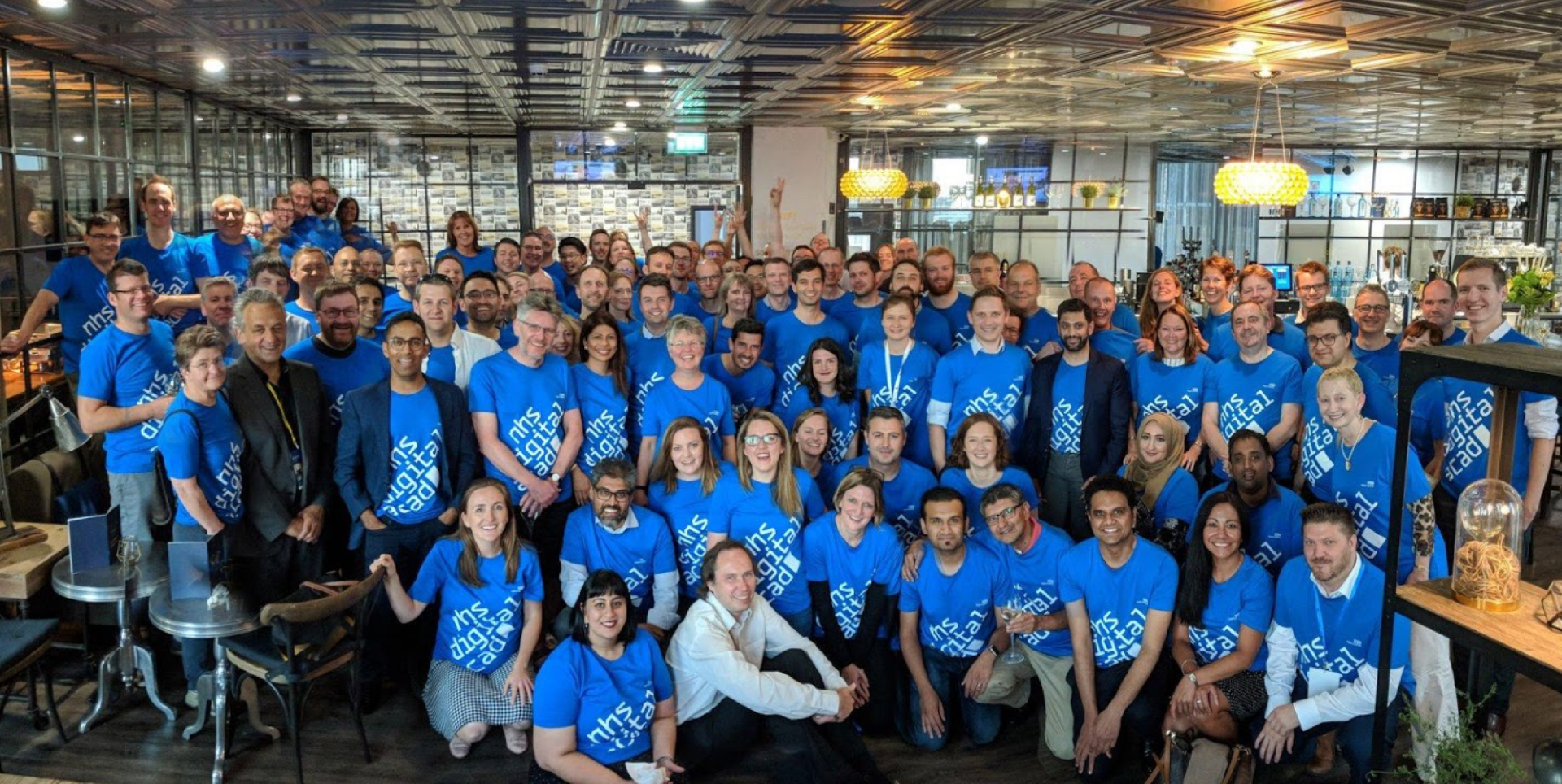
Am I any good? Banishing self-doubt with the Digital Academy
I remember keenly entering a large auditorium on day one of my first Digital Academy residential. We sat down and were warmly welcomed. An online polling app was used and we all duly whipped out our phones and said, in one word, how we were feeling. In the word cloud on the screen at the front, flanked by a huge ‘TIRED’ and a colossal ‘EXCITED’ was my little addition – ‘IMPOSTER’.
Imposter syndrome is a well-recognised issue. I don’t think of myself as a full-blown sufferer, but I do have moments of self-doubt, something I’ve come to understand is more common than I realised.
Those moments of doubt have driven me to find ways to prove to myself (and others) that I am good enough to undertake my job as Chief Information Officer (CIO) of Health Education England. I also knew that my job, leading a programme to develop digital capabilities in the health and care system, including promoting an approach for professionalising informatics, meant that I simply couldn’t sit back on my laurels. There was a little traitorous part of my mind that whispered “don’t do it – you’re a national CIO, if you apply you might not get on, and even if you do, everyone will know that you don’t know how to be a CIO”. But, I’m glad to say, it was a voice that I silenced. If there was a way to test and improve myself, I had to take it. So I applied to be a student on the NHS Digital Academy.
Informatics is now involved in every aspect of health and care delivery. Getting things wrong can be catastrophic in terms of impact on finance, staff or patients.
It has been a roller-coaster ride, a real stretch and I’m pleased to say I’ve come out the other end with a PGDip in Digital Health Leadership. The expectation has been for me to find an additional eight -10 hours every week over the year’s course, and it has been time extremely well spent. We’ve covered global health economics, project and programme management, strategy, user-centred design, data and analytics and leadership. As well as the formal learning, we accessed (and applied) practical tools and models for CIOs and Chief Clinical Information Officers (CCIOs) to help us understand our environment and plan our own strategies for providing services that improve health. I’ve written before about my own ‘Eureka moment’ that came from the ‘pitch to board’ session we undertook in residential three.
Informatics is now involved in every aspect of health and care delivery. Getting things wrong can be catastrophic in terms of impact on finance, staff or patients. WannaCry, the largest cyber-attack ever to affect the NHS, resulted in an estimated 19,484 appointments being cancelled and there have been occasions where informaticians have been directly implicated in the death of a patient or patients. It matters that informaticians know what they are doing.
It is still perfectly possible to practice as an informatician without qualifications, assurance or training. Other careers (clinical, legal, communications, finance, project management) do institute these things and, although these processes and artefacts are never perfect, they do at least try and answer the questions “what is good enough?” and “am I good enough?”.
So, in my search for determining the remit of my job and understanding whether I measure up I have been on something of a journey. I am a member of several professional bodies and have a CHCIO qualification from CHIME (the College of Healthcare Information Management Executives). But the thing that has done the most to calm my underlying imposter syndrome has been the NHS Digital Academy. I feel put through my paces, and I learned a huge amount.
Do I still feel like an imposter? I’m afraid, on occasion, I do. However, I see this as a good thing, something that drives me to better myself. I can see that our education providers, matched with the skills and experience from our new professional and registration bodies, will provide a rich tapestry that will help to answer the question “am I good enough?” for our current and future informatics profession. So, I finish this blog, not with my imposter syndrome cured, but with me having made peace with it. As a colleague said to me jokingly only last week, “the day you no longer feel like an imposter is the day you should look for another job”.
This article originally appeared at NHS Digital.
RETURN TO CHIME MEDIA

